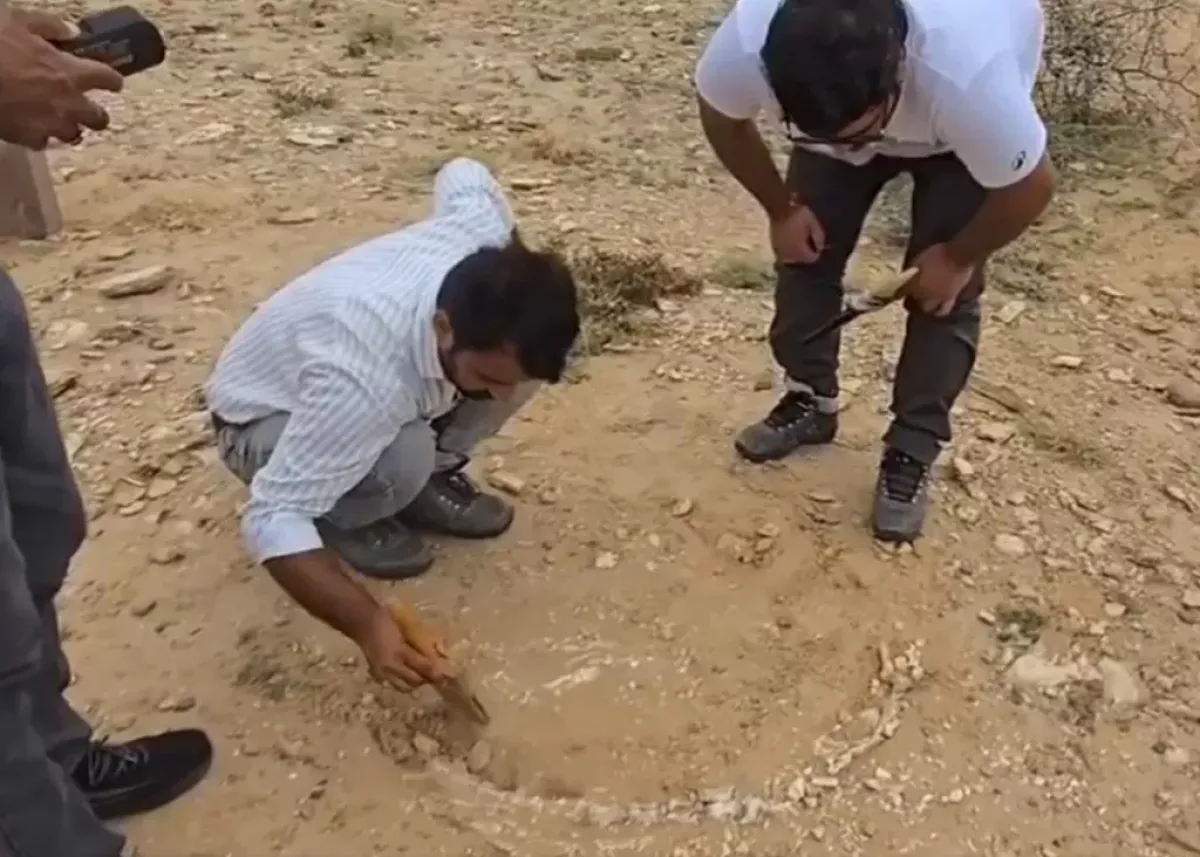Rare Jurassic-era fossil unearthed in India
Researchers in India have discovered fossilised remains of a rare crocodile-like reptile dating back more than 200 million years in Rajasthan’s Jaisalmer district.
The fossil, identified as a phytosaur, was unearthed in Megha village by a team led by senior hydrogeologist Dr. Narayandas Inkhiya of the state water department. Measuring between 1.5 and 2 metres, the semi-aquatic creature is believed to have lived during the Jurassic era in rivers and wetlands, feeding mainly on fish, BBC reports.
The discovery was first reported when local villagers noticed skeletal formations while digging a lake and alerted authorities. Further excavation revealed the fossilised remains, along with what appears to be an egg that may have belonged to the reptile.

“This site could hold many more hidden fossils, offering important insights into evolution,” Dr. Inkhiya told the BBC. He also noted the potential of developing the area into a fossil tourism hub.
Geoscientist C.P. Rajendran explained that phytosaurs were ancient reptiles that eventually gave rise to modern crocodiles.
“This is probably a rare fossil specimen, as only a few phytosaur remains have been found elsewhere in the world,” he said.
The research team, led by senior palaeontologist V.S. Parihar, confirmed that the fossil likely belonged to a medium-sized phytosaur that lived near a river millions of years ago.
The find adds to Jaisalmer’s reputation as a rich palaeontological site. The region lies within the Lathi formation, a geological belt that once supported both river and marine ecosystems. Fossil discoveries in recent years include a dinosaur egg uncovered by Dr. Inkhiya in 2023, and in 2018, remains of what scientists identified as the oldest herbivorous dinosaur ever found in the area.
By Sabina Mammadli








